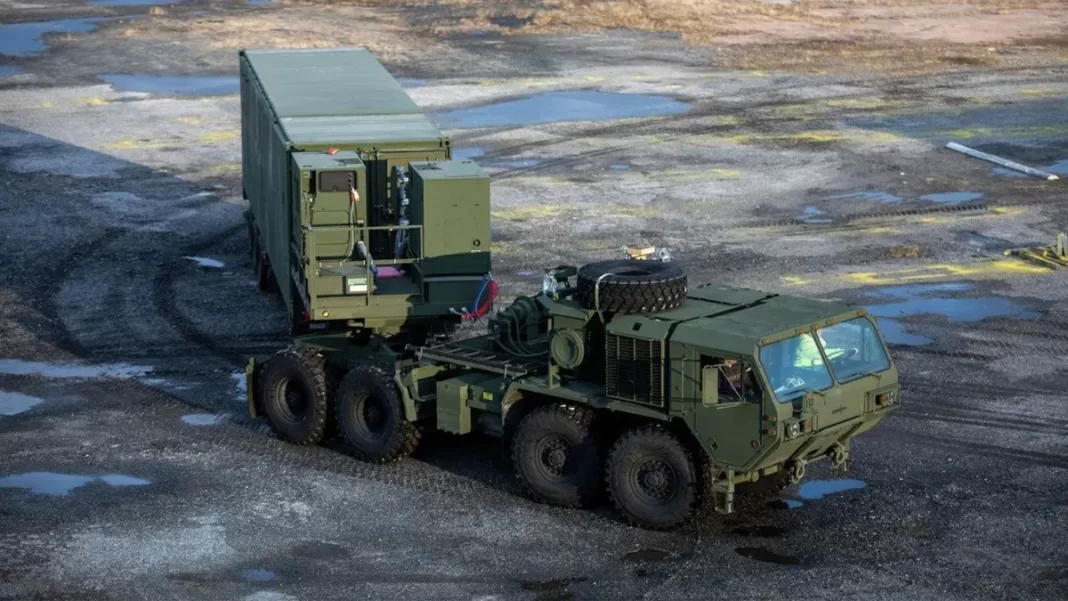China has intensified its criticism of the Philippines for allowing the US Typhon missile system to be stationed on its soil. This deployment has escalated tensions between the two nations and raised concerns about an arms race in the Asia-Pacific region.
Beijing’s Warning of Regional Risks
China’s foreign ministry has expressed strong opposition to the deployment. With a warning of significant risks to regional peace and stability. Beijing claims the presence of the Typhon system encourages geopolitical confrontation and increases the likelihood of an arms race. Officials have questioned the Philippines’ independent foreign policy, arguing that the deployment serves US interests at the expense of regional harmony.
Philippines Defends Sovereign Decision
In response, the Philippines has firmly defended its decision to host the missile system. By emphasising on its sovereign right to enhance its security. Philippine defense leaders argue that the deployment is a strategic move to counter security threats in the region. They assert that these actions align with the country’s national interest and independent foreign policy.
US Typhon Missile System Overview
The Typhon is a land-based missile system capable of launching multiple types of missiles, including the Standard Missile 6 (SM-6) and Tomahawk Land Attack Cruise Missile (TLAM). These weapons have operational ranges of 240 kilometers and 2,500 kilometers, respectively. The system covers critical areas like the South China Sea and the Taiwan Strait, which are hotspots for geopolitical tensions.
This marks the first time since the 1987 Intermediate-Range Nuclear Forces Treaty that such a missile system has been deployed in the Asia-Pacific region. The treaty, which limited land-based missiles with ranges between 500 and 5,500 kilometres , dissolved in 2019.
China’s Concerns About US Influence
China has repeatedly called for the removal of the Typhon system, accusing the US and its allies of destabilizing the region. Beijing views the deployment as a provocative act that challenges its territorial claims, particularly in the South China Sea.
The Chinese embassy in Manila has accused the Philippines of enabling the US to expand its military presence, thereby threatening regional stability. They also criticized Manila’s plans to acquire its own Typhon systems, calling the decision “irresponsible” for the region’s security.
Philippines’ Long-Term Security Plans
Despite China’s opposition, the Philippines remains steadfast in its plans to procure its own Typhon systems. Military leaders argue that the system offers flexibility and visibility, making it a valuable addition to the country’s defense strategy. The Philippine government has emphasized that these developments are not aimed at any specific country but are necessary to address evolving security threats.
The decision comes at a time of frequent confrontations between Chinese and Philippine vessels in disputed areas of the South China Sea. The missile system is seen as a means to enhance the Philippines’ defense capabilities against such threats.
Broader Regional Implications
The presence of the Typhon system has sparked concerns about a potential arms race in Southeast Asia. While China views the deployment as a threat, the US and the Philippines see it as a deterrent against aggression in contested waters.
This development also highlights the broader strategic competition between the US and China for influence in the region. Both nations continue to expand their military capabilities, raising tensions across Southeast Asia.
Looking Ahead
The future of the Typhon system in the Philippines remains uncertain. While Manila has suggested the system could be withdrawn, no definitive timeline has been set. Meanwhile, diplomatic relations between China and the Philippines remain strained, with both nations accusing each other of undermining regional stability.
The situation underscores the growing complexities of geopolitics in the Asia-Pacific region. As nations navigate these challenges, the balance between national security and regional peace hangs in the balance.

